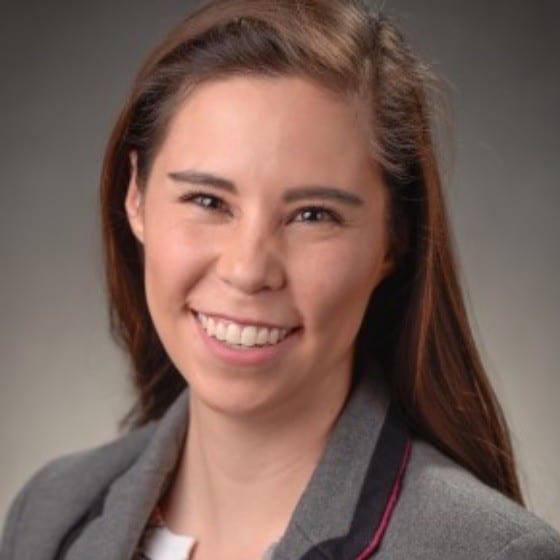
By Danielle Rivera
Every year, thousands of students start college with the goal of becoming a doctor. The majority of these medical field hopefuls pursue a science-related degree and fill auditoriums in freshman biology courses. In 2020, approximately 60% of medical students graduated undergrad with degrees in the biological sciences. But there are plenty of ways to attend medical school without a science degree, and in the process, make yourself a more well-rounded, competitive applicant for med school funding. I know, because I did it — and you can, too!
My Journey from English Classes, to an International Fellowship, to Medical School
I always wanted to be a doctor, but I also found my English classes to be the most rewarding. In fact, I found that studying the humanities and literature actually equipped me with analytical skills that helped me succeed in my science classes. During high school, I volunteered abroad with Operation Smile, a non-profit medical organization that provides free corrective cleft lip surgery worldwide. Equipped with this professional experience, I selected a liberal arts University and declared a pre-med English Writing major. This decision allowed me to have an enriching collegiate experience filled with diverse leadership opportunities that led me to an international fellowship, and eventually to medical school.
As an English major, in addition to learning how to be an effective communicator and how to improve my analytical skills, I had the time to take advantage of campus leadership positions, like being a Resident Assistant, participating in global service opportunities, and coordinating educational and recreational campus programs. All of these experiences made me a competitive applicant for the Fulbright English Teaching Assistantship (ETA) Program. As a Fulbright recipient, I taught English in Laos for one year after graduation, and that unique experience is something that was an important topic of conversation in my eventual med school interviews, and something that gave me a leg-up on the competition due to the skills and perspective my Fulbright Award gave me that set me apart from others.
Of course, there are downsides to choosing a non-science major if you plan to apply to medical school. For example, I had to juggle my pre-med requirements with the courses required for my English major. And because my liberal arts college required core humanities classes for every student, I ended up entering medical school with fewer science courses than most of my classmates.
However, as I discussed above, there were also many benefits to being a pre-med English major that helped me gain acceptance to medical school.
The Benefits of Attending Medical School Without a Science Degree
- I was working towards a degree that gave me lots of transferrable skills, broadening my career options should I ultimately decide not to pursue a medical career. I also feel that I had a more balanced and enjoyable college experience (filled with extracurriculars that made me a competitive fellowship applicant) than if I had majored in Biology and spent lots of time in labs.
- When I did eventually apply to medical school, my major and fellowship experience stood out. They were topics of conversation in my interviews, and gave me the opportunity to talk about my interests genuinely and with an excitement that admissions committees look for in potential students.
- In my experience, most of my science classes required a different form of thinking than my humanities classes. In my science classes, I had to learn, memorize, and apply the scientific theory. In my humanities classes, the lessons were more abstract and required nuanced analysis of concepts while challenging my perspective. Both forms of thinking are valuable, but what is underappreciated in the prerequisites for medical school is how humanities classes can make medical school hopefuls effective care providers. Providing effective care to patients requires being able to communicate in ways patients will understand. I honed this skill in my English classes by learning how to consider and approach an issue from different perspectives. Not only does my English background help me to see things from my patients’ perspectives, but it’s also given me a strong sense of how to frame my health recommendations in ways that might further encourage my patients to make changes in their lives to improve their health.
- My English degree led me to a Fulbright English Teaching Assistantship in Laos, which taught me invaluable skills in cross-cultural communication, resilience, and adaptability, all of which will be a huge asset to me as a medical professional, and ultimately make me better equipped to provide care to my patients.
Knowing that you can get into medical school and become a successful doctor without being boxed into a specific major in undergrad can be incredibly freeing. If you’re not required to study a specific major, you’re free to choose an area of study that gives you a unique skill set and perspective that could overall diversify the medical field for the better.
All of this is to say, if you want to take a less common route to medical school, it’s definitely possible. Here are just a few things to consider before deciding what major might be best for you if you plan to attend medical school.
Things To Consider When Selecting Your Non-Science Degree to Become a Competitive Medical School Applicant
1. Consider Your Interests
When selecting your college major, it’s important to consider what you enjoy, what you want to spend your time studying, and how this interest could translate into transferrable skills that serve you in the medical field. If you really enjoyed your high school science classes, that’s ok! However, if you found yourself looking forward to your Spanish or History classes the most, it’s worth considering whether studying one of those subjects may be an opportunity to diversify your skills. For example, Spanish-speaking health care providers are always needed. And combining your interests in Medicine and History to work on papers that analyze medical history could be a great asset on an application and a way to stand out in an interview. Just remember: If you want to choose a major that doesn’t overlap with classes required for medical school, the sooner you declare your major, the better.
2. Organize and Plan
Once you’ve decided on a major, the next step is to organize and plan. This is incredibly important because schools have a set list of required courses needed to apply to medical school. Some of these courses need to be completed before submitting your application to medical school as well. If you decide on a major outside of the sciences, planning out what your course schedule will look like over your four years of undergraduate is important because it will be harder to fit the classes you need into your academic schedule. This is why declaring your major early on in your collegiate career is very helpful.
My number one tip to help with this is to look into the medical school requirements at a couple of different schools you might be interested in attending, as course requirements differ from school to school. For example, some schools require that students take both Calculus I and Calculus II, while others may only require Calculus I (The schools I was most interested in applying to didn’t require Calculus II, so I chose not to fit that course into my schedule). Consider the order of classes required both for your major and for your pre-med classes.
Making a rough sketch of the classes you’ll need to complete at the beginning of each year will help you make sure you stay on track throughout college, or signal whether you might need to take a class or two over a summer break. While scheduling challenges can always come up, it’s important to have a rough idea of what classes you will need to take by the end of each year of college so you can stay on track to graduate with all your requirements fulfilled. It will also help you get a sense of what courses you might want to take to strengthen your science background. These courses could be something along the lines of human physiology, anatomy, or epidemiology.
3. Consider extracurriculars
Another key factor that medical school acceptance committees consider is what extracurricular activities and enrichment experiences you have outside of your classes that strengthen your application. Of course, the most important experience you can have is medical experience. That can include shadowing physicians, working in a hospital, scribing, or even working as an EMT.
However, interdisciplinary experiences can be incredibly valuable, too. I studied abroad one summer to improve my Spanish language skills, and I also taught English abroad through a Fulbright Award, which was a unique experience I was asked about frequently in my med school interviews. Schools are looking for students who have a diverse array of interests, so it’s ok, and in fact, beneficial, to have diverse experiences that don’t directly relate to medicine. These extracurriculars can help you demonstrate your genuine interest in community service, leadership, or in a specific area you’re passionate about that can make you a successful medical professional.
4. Enjoy your college experience
Working in medicine is a great goal to work towards, but it shouldn’t be your singular focus throughout college. It’s important to take advantage of your undergraduate experience (and fellowship opportunities!) to grow and develop as a person. From my experience, taking advantage of diverse opportunities in college can help you form an interdisciplinary foundation that will serve you well in a rewarding career in medicine, while giving you skills like communication, leadership, empathy, and problem-solving that can make you a stronger and more compassionate medical professional.
Danielle Rivera graduated from St. Edward’s University in Austin, TX with a